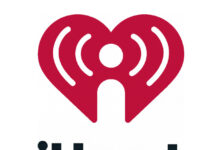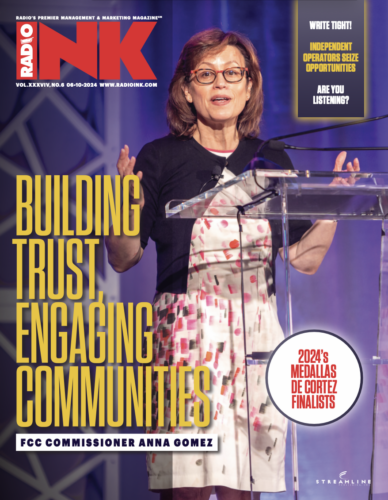
Which era of radio is the best? It’s a question wrestled over between fans of Howard Stern to Wolfman Jack. From shock jocks to the pioneers of rock ‘n’ roll, age has a lot to do with how many look back on the good ‘ole days, but a new poll shows a majority of Americans believe the current era of radio is the worst.
The YouGov survey, conducted from February 29 to March 5, 2024, explored public opinions on the best and worst decades for numerous issues, including radio programming. This survey included 2,000 adult citizens from the United States across various ages, ethnicities, genders, and political viewpoints.
According to the survey, the 1990s emerged as the most favored decade for radio programming, with 12% of respondents considering it the best. This preference was notably higher among younger age groups and Hispanics, with 19% of the 18-29 age group and 16% of Hispanics favoring the 1990s.
The 1980s finished a close second, with 11% considering it the best decade. This sentiment was particularly strong among those aged 45-64 and Republicans, with 22% and 14% respectively favoring this era.
Finally, the 2000s received a favorable nod from 10% of respondents, especially among the 18-29 age group and those with higher family incomes.
As for the worst decade for radio programming, the 2020s were given that dubious honor. This view was especially pronounced among older age groups and those identifying as Independents and Republicans. The 1930s and 1940s also received a fair amount of criticism, with 9% and 3% of respondents respectively viewing these decades as the worst.
Alongside radio, the 2020s were overwhelmingly viewed as the worst decade for both music and news reporting, with 30% and 49% of respondents respectively, while it is considered the best decade for television.
36% of those surveyed were uncertain about which decade represented the worst radio programming, reflecting either a lack of strong negative feelings or limited knowledge about specific eras.
Fortunately for radio – despite YouGov’s findings – AM/FM radio is still America’s number one mass reach medium. Per Nielsen, radio draws a 12% larger average audience than TV among 18-49-year-olds, reflecting a 40% greater reach in this demographic.
Nielsen’s Q3 2023 Total Audience Report ranks over-the-air radio as America’s most widespread media among adults 18 and older, surpassing social media, online video, and various TV formats. Among 18-49-year-olds, radio ties with social media for the highest weekly reach.









The only thing reliable and enjoyable is NPR and other public radio outlets.
In my very red area, I’ve got three choices–but, so many people tolerate the
crap on for profit radio that serves up factless right wing crap that overly
enriches our corporate overlords
Aren’t you glad those awful right wingers haven’t taken away your right to choose what you say and what you listen to? Freedom is so great. Of course if you should decide to pray in front of an abortion clinic, well that is a bridge to far for freedom. Those nasty religious right wing nuts. They need to be stopped! While we’re at it, lets legislate more on what radio stations can put over the air, but be sure to leave the internet alone. There it is ok to let the market place dictate!😂
This is a “Captain Obvious” study, lol. To compare present day AM/FM to the AM/FM content of 30 years ago, is comparing apples to oranges.
AM/FM today at least in the major markets, is controlled by corporate owners who have been absolute cancer to AM/FM.
IHeart, Audacy, Beasley… are all focused on debt servicing and executive compensation. They have
ruined their FM music stations with absurdly long, intolerable commercial breaks of 12, 14, 16 or more commercials in a row— a desperate revenue grab, all about the debt servicing.
These insanely long breaks… drove many people to streaming options and to Sirius.
Plus these corporations have never invested in genuine talent. They use VT to save money, and their part time announcers are paid $18 an hour or thereabouts. These are not “personalities”— these are audio announcers. Not skilled or trained or prepared.
And iHeart especially, constantly promotes on their AM/FM stations, their iHeart app and encourages radio listeners to go there!! What are the optics on that, to advertisers spending money on AM or FM ??? Absolutely horrible!
The debt-buried, clueless corporate entities are running what is now the asylum.
Spot on. Consolidation of broadcast ownership wrecked radio. The FCC cares less, there is lots of interference (deliberate and on purpose) not being addressed, regulatory fees are out of sight, the FCC prefers to work in the office rather than investigate interference, this should be covered by regulatory fees licensees pay. Newt Minow was right in 1962 by declaring television “a wasteland”. Radio is a wasteland now with the exception of some standalone and small group stations originating their own programming; the “bottom line” corporate formats stink and many (including broadcast TV) reek of political bias. I don’t listen to “frogs”, satellite programming heard on several channels simultaneously, etc. No wonder the most outstanding feature of a radio is the “OFF” switch, while listeners switch to alternate formats, Sirius, CD’s, etc.
You of course are right on why radio seems to be struggling especially in larger markets. The answer of course is to put an investment group together and buy some of the stations up that are selling at much lower prices and run them your way. Free markets are just that. We can complain or we can participate. As the saying goes: “it is better to light one candle than curse the darkness “!👍
IMHO. This is probably a worthless survey. First. Garbage questions get smelly answers. Show me the questions. Who designed those questions? Were there redundant questions on the same subject asked multiple ways, and also, were there veracity checks?. From yougov? I doubt it. Second. How were the participants chosen? Yougov, who made this “survey”, is known for basically doing online only polling, which is known to be, well, not exactly accurate because it both relies only on people who go to their site who then voluntarily choose to participate. (We call those people “survey pigs”, and in my opinion, there is no faster way to invalidate your results than to rely on the survey pigs). Third. A deeper dive reveals the conclusions are probably stemming from another well known human trait. In my opinion, all this survey shows is that adults like the music and the sounds of their teenage years best. (Uh. We already knew that). It’s the old maxim “Adults don’t know what they like, they like what they know”. That’s why AC (ADULT contemporary) features mostly recurrents and oldies. This survey is tainted by the perceptions that develop with age that are well known and ultra-documented. We like the sounds of our teenage years best. I’d bet the same question asked twenty years ago would reflect the same exact thing, except with the decades reported as best being twenty years earlier. Yawn. Remember, research is like a lamppost. Use it to light your way, but don’t lean on it. And before you act on any survey information, make sure that light is clear and focused and pointed the right way. In my opinion, for the reasons above, don’t lean on this survey’s conclusions. Surveys are mostly useless unless designed by genuine survey pros in consultation with psychologists. A good survey has well reviewed neutral questions asked multiple ways. They feature check and verify questions to ascertain both veracity and interfering perceptions. A good survey carefully RECRUITS respondents for their geographic, demographic, and psychographic qualifications. Judging from other yougov surveys, a single question, or maybe two, and only asked online, is all they use. That’s an on-line straw poll, not a real survey. Again, please, always show us the survey questionnaires and the exact methodology employed, or the report carries little weight. My advice? Don’t believe any “survey” conclusion that is tinged by unprofessional questionnaires, questionable methodology, and other somewhat nefarious influences. Don’t believe any conclusions until you examine the questions of the survey and it’s methodology in-depth. This survey, TO ME, breaks no new ground whatsoever. It only illuminates some old well-know adult biases. This survey generated a nice click-bait headline … but respectfully, to me, there is little substance there. And frankly, I would not pay attention to it.
Fred, “the good old days” have left the building, lol. We can put our heads in the sand, question methodology/ attack the messenger (something that radio people have done forever), but it doesn’t change reality.
Some of the listener critiques depend upon age. For example, baby boomers, like me, loved radio of the 1960’s and 70’s where rock stations reigned supreme in NYC with the likes of Murray the K with his live remotes, Scott Muni, Dan Ingram and very interesting talk radio at night with Barry Gray, Barry Farber and so many others. There were even nightly radio of the mind shows from the likes of Jean Shepard, storyteller supreme. Or on the non-commercial side, Steve Post and Bob Fass on Pacifica’s NYC station. That period was truly the modern golden age of radio. We all know pre-television radio with all of its variety including drama series was radios first golden age. Too bad the industry veered so far off its path. For those of us who still listen to public radio, we can still catch a lot of creative programming worth tuning in for, though very little of it is live and local.
I don’t listen to broadcast radio any more, eventhough I continue to work in the industry. Bland and boring are two adjectives that come to mind.
I literally drive to my show (shift), and check my email for 10 minutes and then organize the liners that I’m required to read. They are 70% contest info and 30% website teases. I bore myself every time I open the mic, but it’s exactly what they want now. I used to be down about it, but why fight it? They pay me and as long as I smile and just say “I agree”, it’s the easiest 65k (with endorsements) you could ever make.
In a couple weeks they’re making me attend a “Home Show”, which consists of pre-recording some “Live” 30 second breaks for Tampa area businesses. They were so happy when I agreed to go stand there for 2 hours and post a Facebook mention. Of course, this stuff does nothing for the audience or client, but again, they just want compliance.
I literally haven’t done any show prep because it’s not what they want. The key to keeping your job is agreeing to VT any shifts that they want. Management loves when you work for free, so just take the 10 mns to VT weekend shifts. The business is a joke, and the only to get through a joke is to laugh.